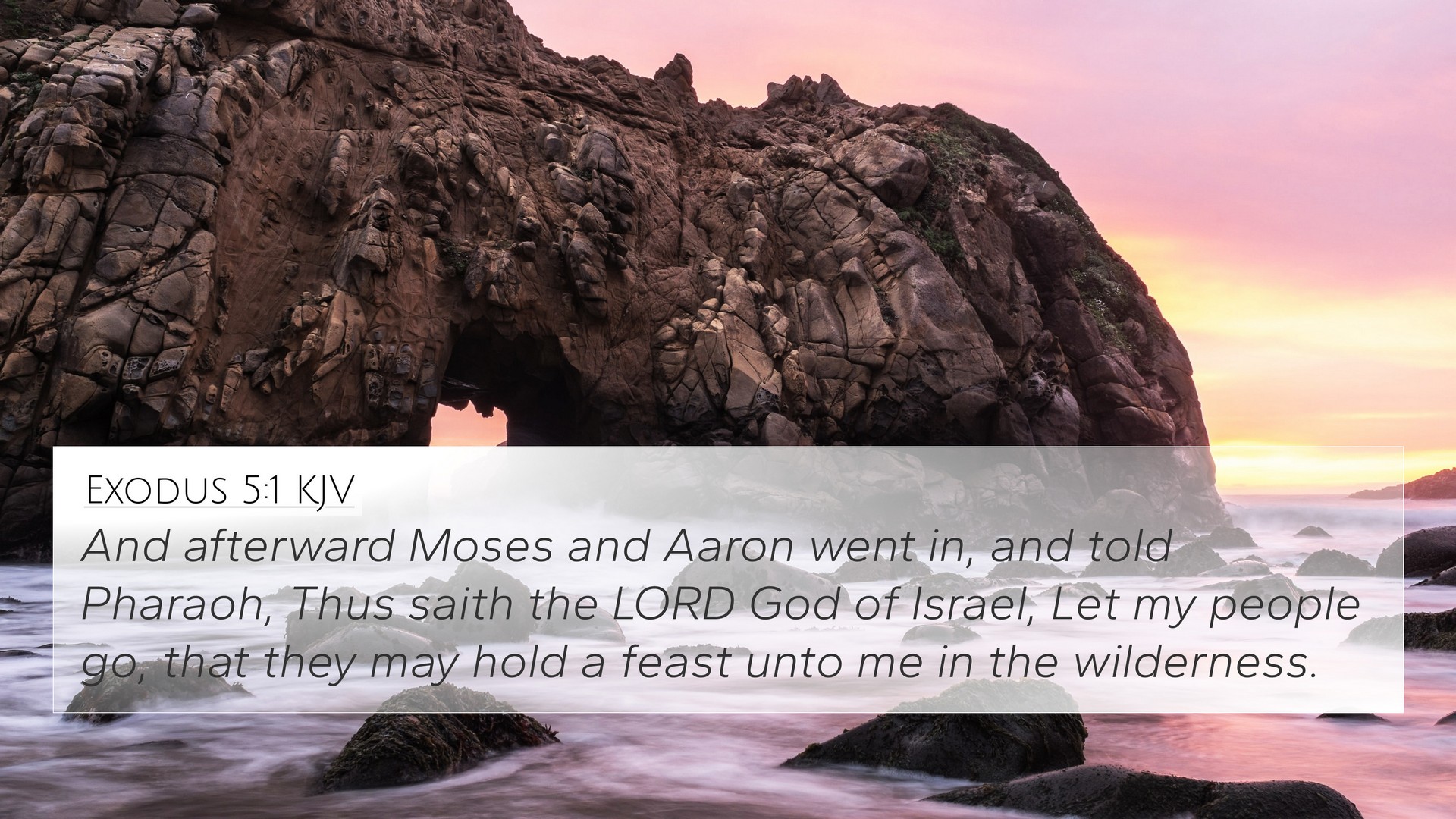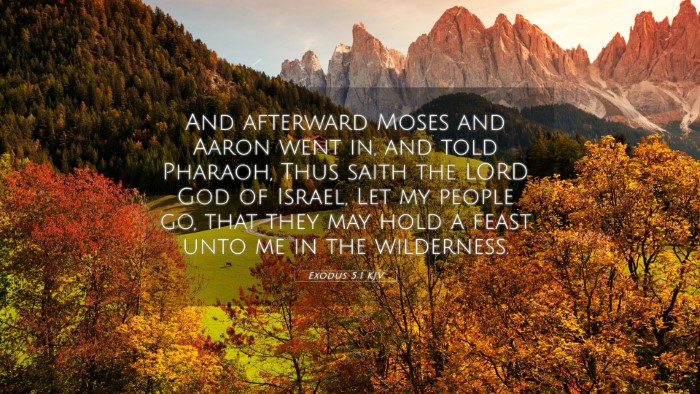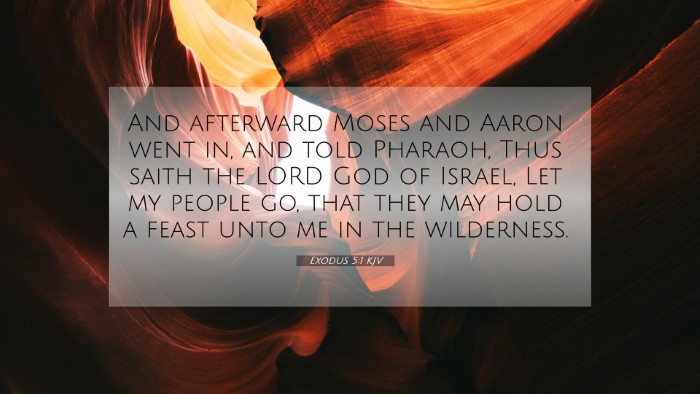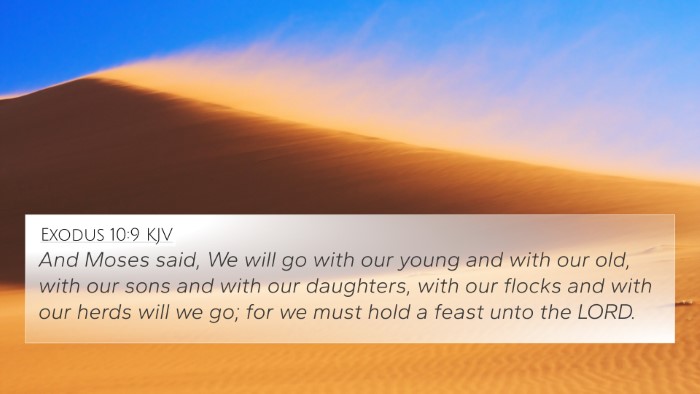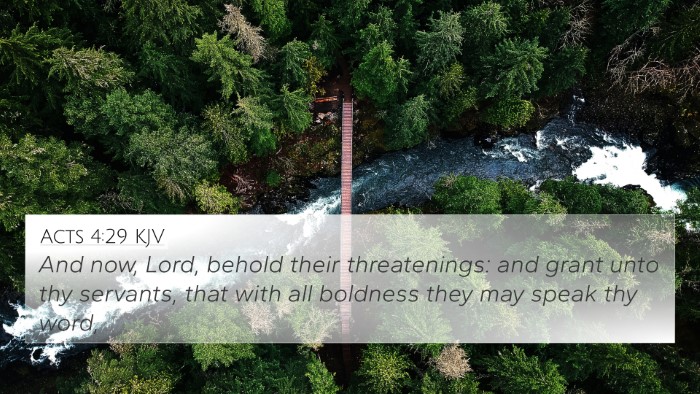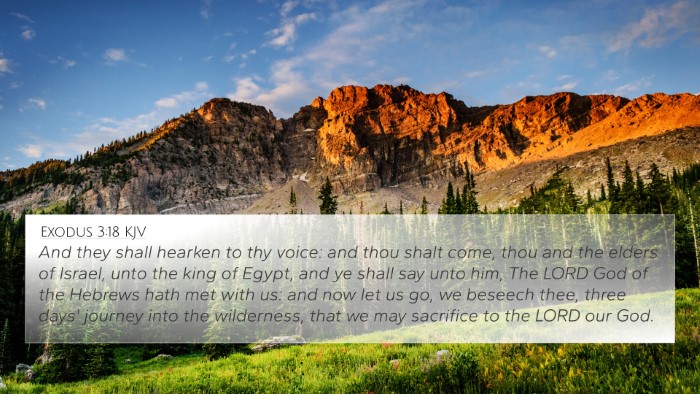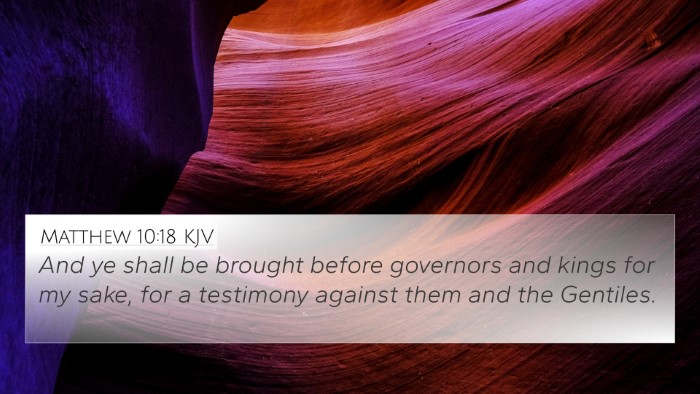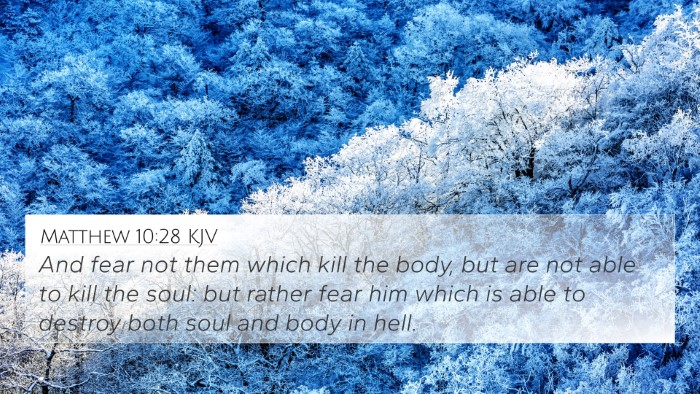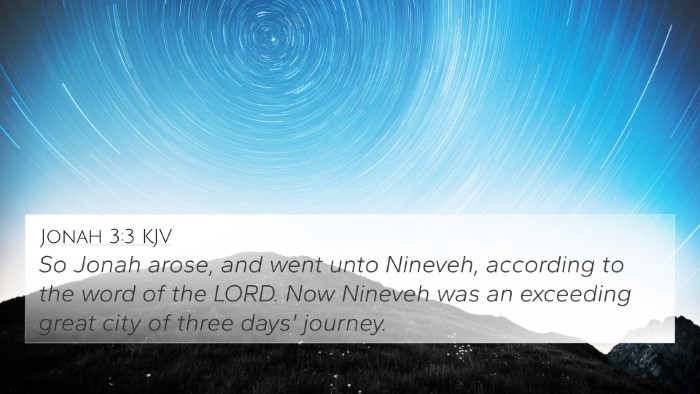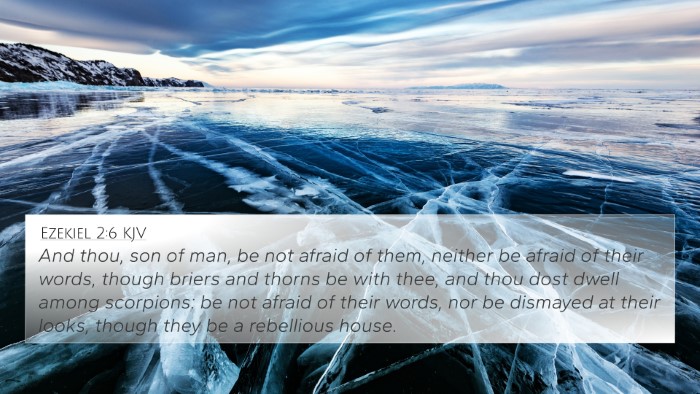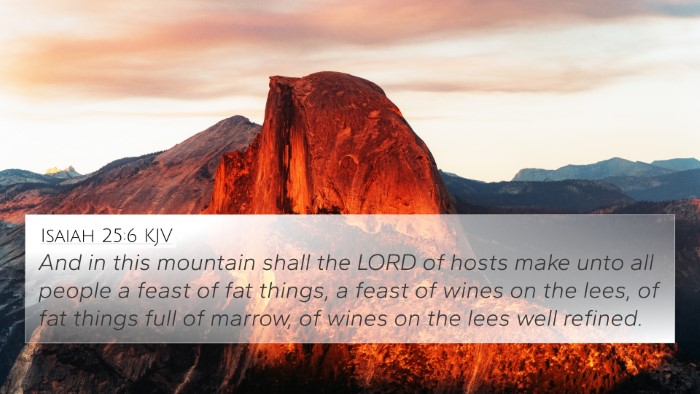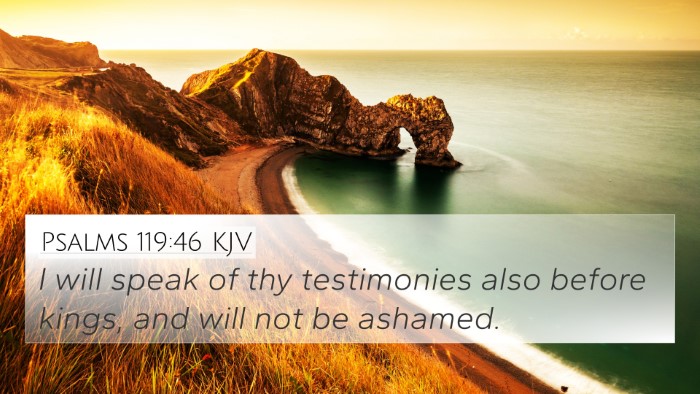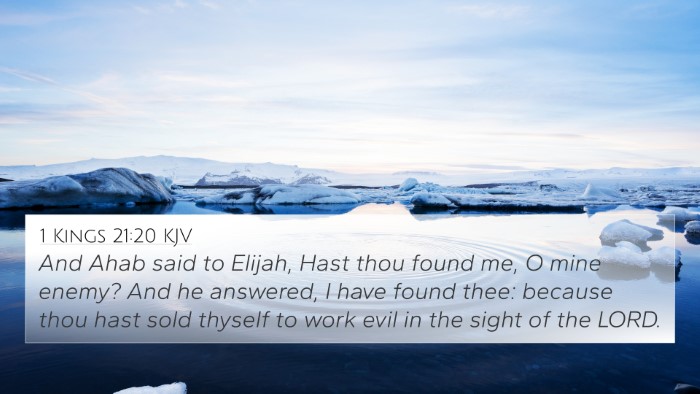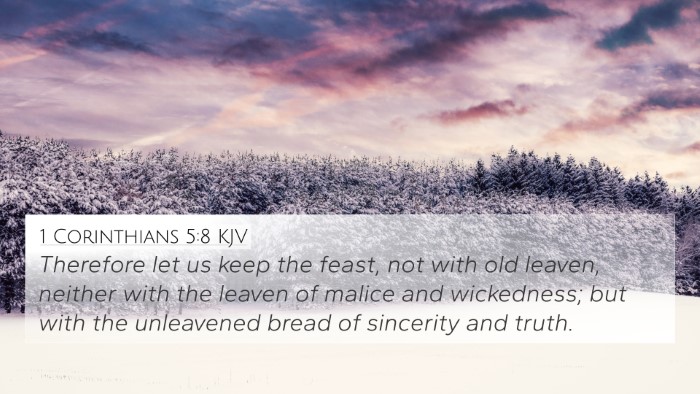Exodus 5:1 - Summary and Interpretation
Exodus 5:1 states, "And afterward Moses and Aaron went in, and told Pharaoh, Thus saith the Lord God of Israel, Let my people go, that they may hold a feast unto me in the wilderness." This pivotal moment sets the stage for the unfolding narrative of Israel's exodus from Egypt. The verse implies a direct command from God, communicated through His chosen leaders, Moses and Aaron.
Contextual Overview
The context of this verse is rich with historical implications. Moses and Aaron are tasked with confronting Pharaoh—who represents human authority and oppression. This confrontation is not merely a request but a divine command demanding liberation for Israel.
Commentary Insights
-
Matthew Henry:
Henry emphasizes the significance of obedience to God’s command. He notes that Moses and Aaron act not based on their authority but as messengers from God. Their directive to Pharaoh reflects God’s desire for His people to worship Him freely.
-
Albert Barnes:
Barnes highlights the importance of the phrase "Let my people go." He points out that this command underscores God's sovereignty over Israel and His intention for them to be a distinct people, dedicated to worship and service.
-
Adam Clarke:
Clarke elaborates on the phrase "a feast unto me." He interprets this feast as not just a physical gathering but a spiritual act of celebration and devotion, showing that God's intent is for His people to find joy in their worship.
Connections between Bible Verses
Exodus 5:1 can be cross-referenced with several key scriptures that enhance understanding of themes of liberation, authority, and worship. Notable connections include:
- Exodus 3:18 - "And they shall hearken to your voice: and thou shalt come, thou and the elders of Israel, unto the king of Egypt..."
- Exodus 6:6 - "Wherefore say unto the children of Israel, I am the Lord..."
- Exodus 12:31 - "And he called for Moses and Aaron by night, and said, Rise up, and get you forth from among my people..."
- Deuteronomy 5:15 - "And remember that thou wast a servant in the land of Egypt, and that the Lord thy God brought thee out..."
- Isaiah 10:27 - "And it shall come to pass in that day, that his burden shall be taken away from off thy shoulder..."
- Luke 4:18 - "The Spirit of the Lord is upon me, because he hath anointed me to preach the gospel to the poor..."
- Galatians 5:1 - "Stand fast therefore in the liberty wherewith Christ hath made us free..."
Thematic Connections
In studying Exodus 5:1, one can observe several themes that open dialogues across scripture:
- Divine Authority: God’s commands through Moses establish His authority over earthly powers.
- Worship and Freedom: The call to “hold a feast unto me” signifies the connection between liberation and worship.
- Obedience to God: The reaction of Pharaoh reflects the broader theme in scripture on the importance of obedience to God's will.
Tools for Bible Cross-Referencing
To enrich one's study of this verse and its connections, several tools can be beneficial:
- Bible Concordance - Useful for finding specific terms across scriptures.
- Bible Cross-Reference Guide - A broad resource to trace themes and ideas between verses.
- Cross-Reference Bible Study Methods - Helpful techniques for engaging in deeper study.
Conclusion
Exodus 5:1 is not just a historical account; it embodies the theological themes of liberation, divine authority, and the intrinsic connection between worship and freedom. Understanding this verse through the lens of various biblical commentators and cross-referencing it with related verses can greatly enhance one’s comprehension of scripture as a whole.
